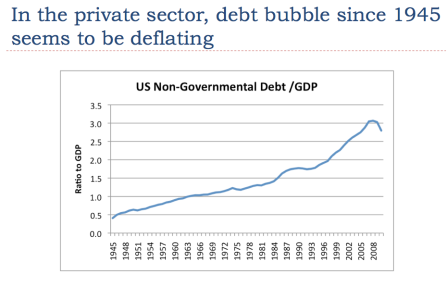Timo wrote:Cost, in reality, has much less to do with the transitions ahead of us than most people think. To exemplify this, look at the telephone. Technology has gone into outer space in this area and people flock to cell phones and smart phones because they're "new," they work better, they do more than the telegraph, or the land-line telephone, or the CB radio, or the tin cans and string.
Electronics are the exception to the rule. With Moore's law, yes, assuming we can work through all the security issues (which seem to progress with a frightening Moore's law in seriousness and pervasiveness themselves), electronics allow for stupendous progress, and at lower cost. Since the main product is really electrons -- there is also plenty for all as long as power is available for the electricity, and to manufacture and ship the stuff.
With physical resources, such as energy (including oil), building materials, food, etc., while there is certainly progress, it is most certainly NOT exponential.
However, population growth in the third world and much of the second world IS exponential, thus the BAU growth problem. Plus, people's appetites for
"more" no matter how much they have are seemingly (almost) universally insatiatable.
No doubt, things like hybrids, plug in hybrids, pure electric cars, and improvements in components like batteries and capacitors that make them possible will help greatly in the first world (assuming a viable economy remains to let the vast majority of folks AFFORD them -- which is by no means assured).
In the first world, we might even realistically achieve a roughly stable net energy demand situation, if the cost of energy is taxed to (or reaches) some minimal level to constrain endless marginal demand.
However, the net demand increase for energy and commodities from the third world population growth AND appetite for the poor to join the middle class is causing a MASSIVE amount of apparently exponential growth, as far as the eye can see. Chindia alone has eight times the population of the U.S., for example.
Example: My next car will certainly get from two to (say) eight times the mpg equivalent of my current one, depending on what I choose. Dandy. BUT, during the (say) decade I own that car, for each first world citizen like me there will be MANY third world families clamoring to get cars vs. bicycles, better housing, eat meat instead of grains, and have all the other trappings of middle class living they can obtain as well.
Outside of special cases like electronics, expecting technology to magically keep up with this pace of net resource demand and all the externalities that come from that resource consumption -- given the track record of the past couple of decades, is as delusional as expecting unicorns and yelling at employers to solve the world's economic problems.
Given the track record of the perma-doomer blogs, I wouldn't bet a fast crash doomer's money on their predictions.

















